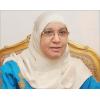Research Paper
- Research Paper
Concept Paper - Societal Violence and Alternative Security Practices
22 Oct 2012Summary: This program works to identify and establish dialogue with alternative urban-community practices of violence reduction, human-security promotion, and societal safety that have emerged in Egypt since the transformative events of 2011. We aim to support communities as they articulate the novelty of the new practices and concepts. And we will build on these alternatives to shape new policy tools and public participatory mechanisms that will have national, even international, impact.
- Research Paper
Women Human Rights Defenders Concept Papers
27 Jun 2012Executive Summary- The Women Human Rights Defenders (WHRD) program is issuing a series of concept papers that aim to introduce the notion of WHRDs: who they are, what they do, and why they should be considered as a distinct group of human rights defenders. The categories of WHRDs analyzed in the concept papers include: vocational women (doctors, nurses, and teachers); students; political candidates; civil society activists; protesters; and workers (industrial and agrarian sectors).
- Research Paper
Women and Constitution Working Group Document
26 Apr 2012In May 2011, the Women and Memory Forum has initiated the "Women & Constitution Working Group". The working group saw the light after the January 2011 Revolution and is part of the Coalition of Egyptian Feminist Organizations. The working group has been working in coordination with the "Let's Write Our Constitution" initiative and the "Popular Committee for Constitution Writing". The "Women & Constitution Working Group" has studied gender relevant articles in Egyptian constitutions and in other countries' constitutions.
- Research Paper
Critical Review to Statements of Manal Abul Hassan about Women March and Her Perspective about Women Rights Issues
25 Feb 2012This paper is providing an analysis from gender perspective and from Islamic feminist perspective, to the statements of Dr Manal Abul Hassan, the secretary of Women division of Cairo, of the Freedom and the Justice party, here and after FJP , the political arm of the Muslim Brotherhood. Abul Hassan criticized female demonstrators and their march which was known by “women march”, where they refuted the violations of the army personals against the female protestors in the cabinet incidents, which took place in December 2011.
- « first
- ‹ previous
- 1
- 2
- 3


